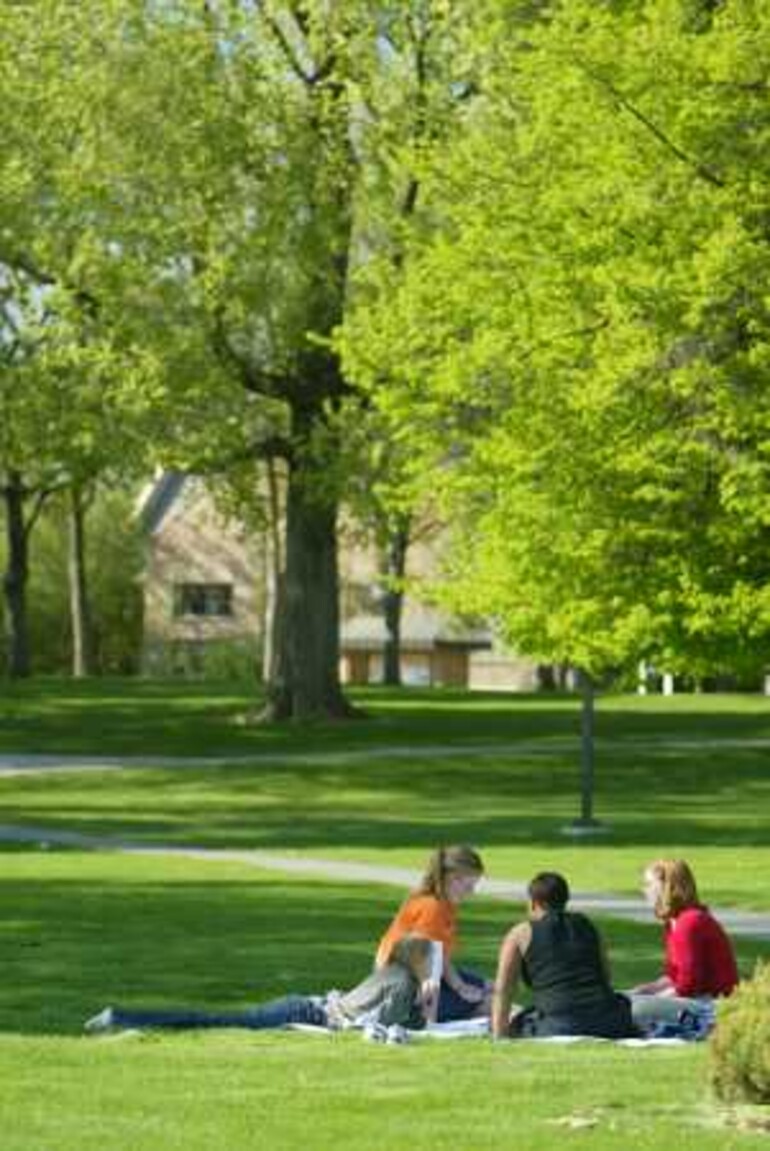It was a question I was almost afraid to ask.
But as our son solidified his plans to attend Walla Walla College, it became apparent that the time had come to talk with the school about finances.
Like many parents, I wondered just how much the next four years were going to cost us. How much had tuition gone up since I had walked these hallowed halls? Were the rumors true—that more and more families simply couldn't afford it anymore?
I'd grown up in a family where a Christian education was something you simply found a way to afford, regardless of the cost, and we'd always made it a priority. Still, I felt a growing sense of concern as to just what this experience would require from us, knowing that at some point soon we'd have two sons in college. I wondered how we'd navigate the years ahead.
With academy graduation looming on the horizon, we decided now was the time to find out.
I was pleased—and even surprised—to find out that, despite the initial sticker shock, once a financial aid package is put together, the price of college shouldn't keep anyone out who ought to be there. Consider these facts:
The average family paid about the price of a high-definition TV—or about $4,000—to send their student to Walla Walla College last year. To be precise, the average family contribution to student expenses there was $4,006 last year, compared to an estimated $11,250 contribution required for an out-of-state public university or college. WWC gave out $32.5 million dollars in financial aid last year, with the average award being $17,448, compared to the $10,300 average package for a major state university. Between 80 and 90 percent of parents pay less for their students to go to Walla Walla College than to go to an Adventist academy. WWC can actually cost less than a public college (including community college) when the financial aid package is factored in. WWC is one of two colleges with the lowest room-and-board costs in Washington.
Families who don't qualify for aid based on need will be pleased to know about a new scholarship program launched this year.
Although WWC has awarded scholarships for high grades, high ACT and SAT scores, and academy leadership positions in the past, this year they've announced that they'll extend these awards for four years—provided the student keeps up his or her grades. This can amount to as much as $22,000 over four years. (To see how much free money your child could get through this program, run through the scholarship calculator shown.)
Including scholarships, the college has around $37 million in aid to award for 2006-07. To get some of that, you’ll need to take two important steps:
1. Fill out the financial aid application at sfs.wwc.edu/application.
2. Fill out the federal government’s aid application at fafsa.ed.gov.
Cassie Ragenovich, WWC student financial services director, encourages parents to do this even if they think they won’t qualify for aid. "We’ve seen a lot of families pleasantly surprised," she says. "But it is important to do it soon, since some funds do run out."
I was deeply touched by the spirit I felt in the student financial services department when I visited. The staff there clearly feel that if it's God's will for you to be at WWC, they can find a way to help you get here. And they're not just talking smoke and mirrors. Their stories of students who were able to attend WWC through miraculous means are inspiring.
"We want to see that any student that God is leading here is able to attend," says Cassie. "And we’re committed to doing everything we can to help them get here. If money is a problem, we’ll find a solution. We’ll guide them through the financial aid application process and put together an award package tailored to their family’s needs."
Though the price tag isn't small, I left the office realizing that a WWC education is not only possible for us, but, I believe, it's possible for anyone who has a will to make it a reality. With parents, students and the college working together, a WWC Christian education can be within reach.
For our family, it's meant committing weekends to helping our son identify and apply for scholarships. It will mean making college our financial priority in the years ahead. Our son, too, will need to do his part—by both working at a job and keeping his grades up.
But having done this myself once, I've no doubt that it will be worth the effort. Having spent time on a secular campus, my husband and I know that there's no price tag we can put on the experience of studying in a faith-based environment.
We're certain that it's one of the most important investments we can make in our children's future. And it's our goal to do what we can to not only see that our children have the opportunity to attend WWC, but to encourage others who should be there to attend as well.
Cassie Ragenovich, Student Financial Services, (800) 656-2815 or (509) 527-2815, rageca@wwc.edu
Victor Brown, Office of Enrollment, (800) 541-8900 or (509) 527-2327, browvi@wwc.edu











